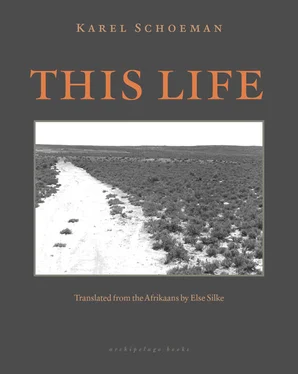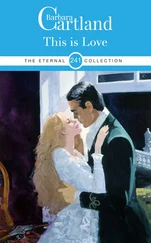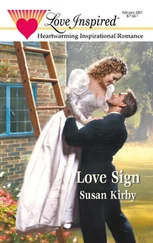Karel Schoeman - This Life
Здесь есть возможность читать онлайн «Karel Schoeman - This Life» весь текст электронной книги совершенно бесплатно (целиком полную версию без сокращений). В некоторых случаях можно слушать аудио, скачать через торрент в формате fb2 и присутствует краткое содержание. Год выпуска: 2015, ISBN: 2015, Издательство: Archipelago, Жанр: Современная проза, на английском языке. Описание произведения, (предисловие) а так же отзывы посетителей доступны на портале библиотеки ЛибКат.
- Название:This Life
- Автор:
- Издательство:Archipelago
- Жанр:
- Год:2015
- ISBN:978-0-914671-16-9
- Рейтинг книги:5 / 5. Голосов: 1
-
Избранное:Добавить в избранное
- Отзывы:
-
Ваша оценка:
- 100
- 1
- 2
- 3
- 4
- 5
This Life: краткое содержание, описание и аннотация
Предлагаем к чтению аннотацию, описание, краткое содержание или предисловие (зависит от того, что написал сам автор книги «This Life»). Если вы не нашли необходимую информацию о книге — напишите в комментариях, мы постараемся отыскать её.
considers both the past and future of the Afrikaner people through four generations of one family. In an elegiac narrator's tone, there is also a sense of compulsion in the narrator's attempts to understand the past and achieve reconciliation in the present. This Life is a powerful story partly of suffering and partly of reflection.
This Life — читать онлайн бесплатно полную книгу (весь текст) целиком
Ниже представлен текст книги, разбитый по страницам. Система сохранения места последней прочитанной страницы, позволяет с удобством читать онлайн бесплатно книгу «This Life», без необходимости каждый раз заново искать на чём Вы остановились. Поставьте закладку, и сможете в любой момент перейти на страницу, на которой закончили чтение.
Интервал:
Закладка:
At the end of the winter we returned to the Roggeveld, and I suppose Jakob came with us to help with the trek, but he must have gone back shortly afterwards to fetch Sofie. They probably got married in Worcester, but none of us was there, though I know of no reason for it, only that they were already married when they came to us and that he led her into our circle as his wife. Anyway, it was still spring when she came, that bleak, treacherous spring with its changeable winds and its constant threat of cold and frost, the veld fleetingly bejewelled with colour and the dams glittering like lakes and marshes in the sun. We must have been expecting them earlier, for I remember that to me as a child it had seemed an endless wait, and when the dogs began to bark and we heard the horses outside, it was already dark, so that Dulsie stooped to pick up a burning branch from the hearth when we went outside to welcome them. That is how I saw her for the second time, just as she had appeared to me the first time, the oval of her face lit up for a moment by the flickering of a flame, before Jakob lifted her off the wagon-chest: that is how Sofie came to us.
A rich man’s daughter — who said that? It was at a wedding or a funeral, as usual, where the voices flowed together as I moved among the people without anyone noticing me or realising that I overheard their words, gathering information and collecting splinters to piece together a pattern. Father’s funeral, and the men discussing Maans — whose voice had it been? I can no longer identify it, nor put a face to it, it is only the words that I still remember: “But after all, she was also a rich man’s daughter”; for by that time both Maans’s grandfathers were dead, and he had inherited from them both. Yes, it must have been true, for it was clear that in the house where she had grown up, there had not been that painstaking effort to make ends meet that we were used to, and that everything she had needed had been supplied readily and generously, and in her conduct there was also a certain delicacy and refinement rarely found among people in our part of the world. Perhaps these things would not have been immediately apparent, but to us who shared a home with her they became clear enough, and I remember Mother, when she was annoyed, commenting to Father on the new daughter-in-law’s dainty little manners and whims. More money, more servants, more comforts, the few months she had spent at a boarding-school in Worcester and the satin dress and ruby necklace she had brought along in her trunk when she got married, all these things distinguished Sofie’s world from ours.
Was that why Mother, no matter how annoyed she sometimes became, still hesitated before Sofie, withdrawing at last in sullen silence without even trying to take her on. If there had to be conflict between the two of them, it seemed inevitable that Mother would be victorious, and since when had she ever shown reluctance to impose her will and have her orders obeyed? Why then did she, otherwise so passionate, so forceful, so domineering, hesitate before this girl and grant Sofie a measure of freedom never bestowed on her own children? It was not out of affection or respect, for Mother was fond of no one except Jakob; nor was it out of love, for Maans was the only one for whom Mother had ever felt love. At best Sofie was tolerated in our household, never accepted or even looked on with approval — no, it is not my imagination, though I can offer no proof of my opinion; I know I was no more than a child, but how could I not have been aware of such things in that house where our family lived together in five rooms and we women worked side by side day after day while the men were out? Why she had this almost privileged position among us, that I do not know, however, and only hesitantly can I try to explain it. Groping through the past, step by step along the invisible road, I remember the house in the Karoo where we arrived that evening and Sofie on the threshhold, the candle in her hand, Sofie in her satin dress on the dance floor, Sofie who had gone to school in Worcester and could read and write, and I remember Oom Ruben with his wretched wife and half-wild children and their strange submissiveness and animosity even towards those who were their kin. I struggle to form the thought, I find it difficult to say the words, and how could one ever associate a word like fear with Mother, she who remained fearless right up until that bitter and silent deathbed? But once again I wonder if this had not been what had remained concealed behind all Mother’s passion and ambition after all, and if this might not also have been the reason for her inexplicable indulgence towards Sofie: the sudden fear and uncertainty of a barefoot girl from a migrant family in the presence of the wealthy farming people on whose goodwill and mercy she and her family had been dependent all their lives? No one will ever know.
What am I saying? Words keep running through my mind, and alone in the dark I am stringing together words I was not even aware I knew, and running off sentences in a way my slow tongue could never have managed before. But to what end, to what end?
Words are no longer of any use now, and the past is beyond redemption; if the girl on the cot at my feet should wake, she would distinguish no sound in the dark nor hear any movement, if she should get up to set the night-light burning once again, she would see nothing in the dim glow but the familiar room and the old woman in the bed, motionless against the stacked pillows, wide-eyed and awake. She sleeps unhindered, however, her breathing regular, and the darkness is on fire as Sofie dances before my eyes, flickering like a flame, radiant in her satin dress, black on black, veiled by the golden haze of the candlelight and the powdery dust, to the beat of fiddle and accordion, to the rhythm of stamping feet on the clay floor, like a relentless, insistent pulse. Sofie slender and straight in her black dress, and Pieter, my brother, facing her in the candlelight in the dark, the two of them together, flickering shadows black on black in the dark. The girl on the cot remains motionless.
We never entertained and we seldom visited the neighbouring farms when I was a child, but that New Year after Jakob’s wedding my parents held a dance on our farm, for with his marriage many things began to change even though the transformation did not last long; it was only many years later, when Maans came of age, that there was dancing on our farm again. When Jakob got married, however, a dance was given to celebrate the wedding and to welcome the new daughter-in-law and, I suppose, also to show the neighbours, look, this we have, so far have we come by scrimping and saving and planning, silently and resolutely, and now we can breathe more easily at last and look up, without having to defer to anyone, without having to rely on anyone, and inferior to no one; come and see. Am I doing you wrong, Mother? But you never said anything yourself, you were never prepared to explain, nor did you ever acknowledge the least obligation to explain or justify. Now it is too late and only I have remained to piece my bits and fragments together to discover for myself the pattern that emerges.
Thus at New Year there was dancing on our farm, as I have said, and for days, for weeks, our house was filled with bustle and something I might even describe as exhilaration, though perhaps I am thinking mostly of Sofie when I say this, for she was as exuberant as a child at the thought of merriment and people and music after the first months of isolation and silence she had experienced with us, laughing and gay in the dark house where we lived side by side in silence, dancing through the darkness like a flame, so that, in spite of my own shyness and reserve, I, too, was touched by her happiness. The musicians had already arrived and were exchanging banter with the servants in the kitchen, and now and again one of them played a quick tune, a fragment of a waltz or seties on the fiddle or accordion, that echoed through the shadowy house provocatively and defiantly; outside Pieter called out that the first guests were arriving. The sun had not yet gone down, but inside the bedroom a candle had to be lit, and Sofie turned to me from the small looking-glass over which she had stooped to pin up her hair; out of the gloom, out of the shadows, out of the dark she rose up towards me like a swimmer from the dark waters of a pool, entangled in the heavy, gleaming folds of her black satin gown, her wedding gown, that she was wearing here with us for the first time tonight, and she reached out to me with both hands. “Sussie, you have to help me,” she whispered, her eyes shining with excitement, as if she wanted to share a secret with me, but she only wanted me to fasten the beads around her neck, beads as black as her dress, unexpectedly radiating faint colours when I held them up to the candlelight. “These are rubies,” she told me, still whispering as if it were a secret we were sharing, and my hands were trembling so much that I struggled to fasten the tiny hook. Silently I touched the dark, shiny gemstones and the dark, smooth fabric of her gown, for such things I had never seen before, and I looked at the rest of her finery, the narrow gold bracelet and the little gold ring with the heart. Sofie’s dark head bent over the candle-flame and the pulsing of the restless music through the house and Gert calling outside and Pieter who came running across the yard, laughing with excitement, and the vast, open land out there, widespread, basking in the last rays of the sun, though here inside the house it had long been dark, the rolling veld with the shrubs and rocky ridges aflame in the late light and in the distance the dust of the vehicles on their way here.
Читать дальшеИнтервал:
Закладка:
Похожие книги на «This Life»
Представляем Вашему вниманию похожие книги на «This Life» списком для выбора. Мы отобрали схожую по названию и смыслу литературу в надежде предоставить читателям больше вариантов отыскать новые, интересные, ещё непрочитанные произведения.
Обсуждение, отзывы о книге «This Life» и просто собственные мнения читателей. Оставьте ваши комментарии, напишите, что Вы думаете о произведении, его смысле или главных героях. Укажите что конкретно понравилось, а что нет, и почему Вы так считаете.












